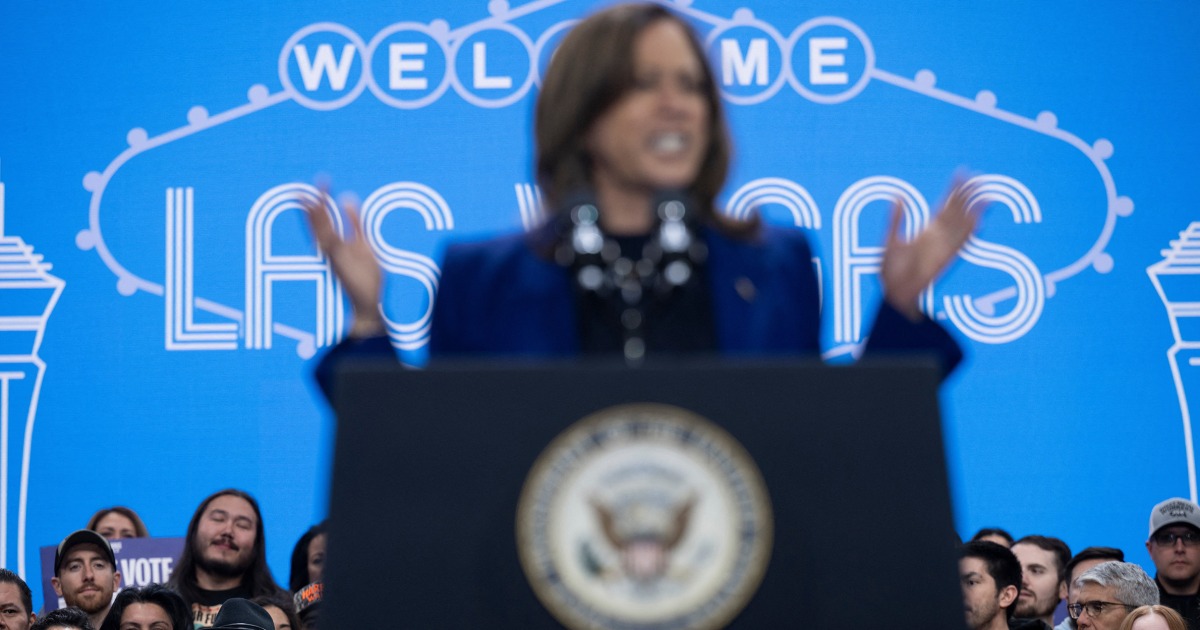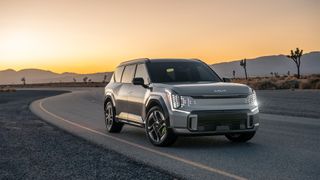
After a tense election cycle that saw twists and turns akin to a Six Flags roller coaster, millions of Americans flocked to the polls to decide between Vice President Kamala Harris and former President Donald J. Trump to fill the seat in the Oval Office. Following favorable post-Election Day projections, in the early morning hours of November 6, former President Trump declared victory during a speech he delivered alongside his family, running mate J.
D. Vance, and a who's-who of supporters, including Ultimate Fighting Championship (UFC) president and CEO Dana White and Tesla CEO Elon Musk . 💰💸 Don’t miss the move: SIGN UP for TheStreet’s FREE Daily newsletter 💰💸 Though analysts like Dan Ives have predicted that a Trump victory would spell out positives for Elon Musk and Tesla, given their recently cordial relationship, the results of yesterday's election could determine the fate of the auto industry as a whole, as many policies could drastically the way automakers do business.
However, the CEO of one well-known automaker says he is unaffected by the next Trump administration's policies compared to his direct rivals, who may be a target after inauguration day. picture alliance/Getty Images BMW CEO says Trump tariffs may benefit automaker BMW CEO Oliver Zipse told reporters on a call about its Q3 2024 earnings that the idea of potential import tariffs on foreign-made cars under a Trump Presidency may actually benefit the German luxury automaker, according to Reuters The figurehead pointed to the brand's Spartanburg, South Carolina facility, which produces 1,500 units of popular crossover SUVs daily. According to BMW, 11,000 workers make the X3, X4, X5, X6, X7, and XM at this plant, and 60% of its output is exported to 120 countries, including BMW's native Germany and its largest market: China.
With stats like this, Zipse noted that BMW may have "more of an advantage" if tariffs are enacted "because we have a very, very large footprint in the USA." "In this respect, we shouldn't be too nervous about what might happen," Zipse said, adding that two-thirds of BMW's U.S.
sales are vehicles produced at Spartanburg. Related: BMW's newest innovation may sound the alarm for the UAW The BMW CEO also noted that the brand is committed to investing further in Spartanburg. Already, the automaker conducted a trial run of the Figure 02 humanoid robot at the plant.
It had tasked it with "sheet metal parts [...
] which were then assembled as part of the [vehicle's] chassis," a job that requires human workers to be "particularly dexterous." More 2024 Election: Trump delivers blunt words on imported autos If any words he expressed during his campaign stops are anything to go off on, the world's auto industry, including Detroit's Big Three, is in for a ride come Inauguration day. In remarks delivered during a rally in Savannah, Georgia, on Sept.
24, the former president expressed his desire to impose a hefty penalty against automakers who dare to make cars outside the borders of the United States. Specifically, he sees Mexico as a theoretical back door for foreign and domestic automakers to take advantage of current American trade regulations. "[Automakers] think they’re going to sell their cars into the United States and destroy Michigan and South Carolina and North Carolina and Georgia and all of the places that make autos.
It’s not gonna happen," Trump said. "We will put a 100 percent tariff on every single car coming across the Mexican border. And tell them the only way they’ll get rid of that tariff is if they want to build a plant right here in the United States with you people operating that plant.
We want American citizens and we want their plants built here, not two feet over the border and selling them into our country. We’re not doing that. We don’t do that anymore.
" Related: Donald Trump's shocking new proposal is a gut punch to the auto industry Honda may be in Trump policy crosshairs With this policy possibility in mind, Honda executives were left worried about their operations. As per Automotive News , during remarks that also reported a 15% drop in quarterly operating profit, Honda Executive VP Shinki Aoyama warned that Trump's potential tariffs could impact its imports of vehicles and parts. He noted that Honda ( HMC ) makes roughly 200,000 vehicles in Mexico and ships about 160,000 of them to the U.
S., including the Prologue EV and the popular HR-V compact crossover SUV. “The impact could be 160,000 units subject to a tariff,” Aoyama said.
“That is a big impact.” Aoyama said any tariffs implemented in the U.S.
would not be implemented without significant lobbying and negotiation; however, he does have a plan if it becomes an actual problem. “Maybe we would go for production elsewhere not subject to U.S.
tariffs,” he said. Drew Angerer/Getty Images A key Trump era policy could hinder Trump's auto plans Unbeknownst to Trump, one of his own landmark policies stands between him and his fantasy of triple-digit tariffs. In 2020, the United States-Mexico-Canada Agreement (USMCA) replaced the North American Free Trade Agreement (NAFTA), and when he signed it into law, he called it "the fairest, most balanced, and beneficial trade agreement we have ever signed into law.
" The USMCA prohibits tariffs on many goods and allows companies to produce them in the United States, Canada, or Mexico and export them among the member nations with little red tape. Previously, under NAFTA, automakers must make cars with at least 62.5% of North American-made parts to qualify for tariff-free entry.
Under the USMCA, the number increased to 75%. The repeal of the USMCA requires congressional approval. Related: Veteran fund manager sees world of pain coming for stocks.














